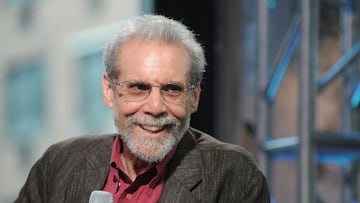Daniel Goleman, expert in emotional intelligence: “Leadership is not domination, but the art of persuading people to work toward a common goal”
The psychologist and global voice behind “emotional intelligence” emphasizes its importance both on a personal and professional level.

Most Americans have heard the phrase emotional intelligence—maybe in a job interview, a leadership seminar, or a tough moment when staying calm felt impossible.
The idea didn’t come out of nowhere. It was popularized by psychologist and author Daniel Goleman, whose bestselling book Emotional Intelligence reshaped how we think about success, relationships, and leadership.
Since its release, the book has become a reference point across workplaces, schools, and boardrooms. And at the center of Goleman’s work is one idea many leaders quote today—often without realizing where it came from.
“Leadership isn’t domination” — Goleman’s most misunderstood lesson
One of Goleman’s most shared insights is simple but powerful:
“Leadership is not domination, but the art of persuading people to work toward a common goal.”
The line circulates widely on professional networks, especially in conversations about workplace culture.
But for Goleman, emotional intelligence goes far beyond being empathetic or “nice.”
The hidden health impact of managing negative emotions
Goleman argues that helping people deal with difficult emotions — anger, anxiety, depression, pessimism, loneliness — is not just good management. It’s a form of prevention:
He explains that chronic negative emotions can be medically harmful, comparing their long-term impact to that of smoking. If people learn to manage these emotions effectively, he says, the health benefits could be as significant as helping heavy smokers quit.
It’s a striking comparison from someone The Wall Street Journal once named one of the ten most influential thinkers in business.
A career built on research—and a message that reshaped workplaces
Goleman launched his academic career at Harvard University, where he also earned his Ph.D. He later joined The New York Times, becoming one of the newspaper’s leading writers on behavioral science.
Beyond journalism, he co-founded CASEL—a pioneering organization in social and emotional learning—and serves as co-director of the Consortium for Research on Emotional Intelligence in Organizations at Rutgers University.
His influence spans psychology, education, leadership training, and corporate development.
Being emotionally intelligent isn’t always “being nice”
One misconception Goleman often addresses is the idea that emotional intelligence equals kindness. In reality, he says, there are moments when true emotional intelligence demands something harder:
Sometimes it means confronting a colleague directly with a difficult truth — especially when avoiding the issue could cause deeper problems later. It’s a reminder that emotional intelligence isn’t soft. It’s strategic, demanding, and crucial to the way people lead and collaborate today.
Related stories
Get your game on! Whether you’re into NFL touchdowns, NBA buzzer-beaters, world-class soccer goals, or MLB home runs, our app has it all.
Dive into live coverage, expert insights, breaking news, exclusive videos, and more – plus, stay updated on the latest in current affairs and entertainment. Download now for all-access coverage, right at your fingertips – anytime, anywhere.
Complete your personal details to comment